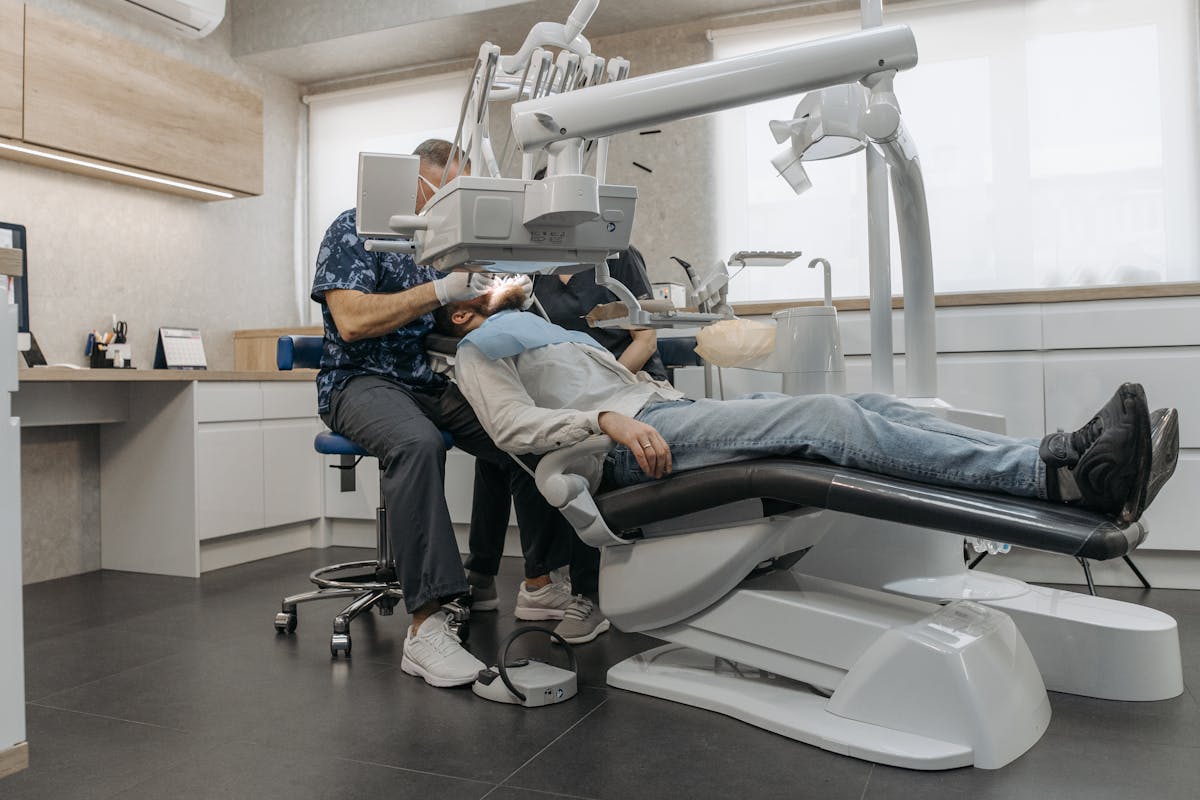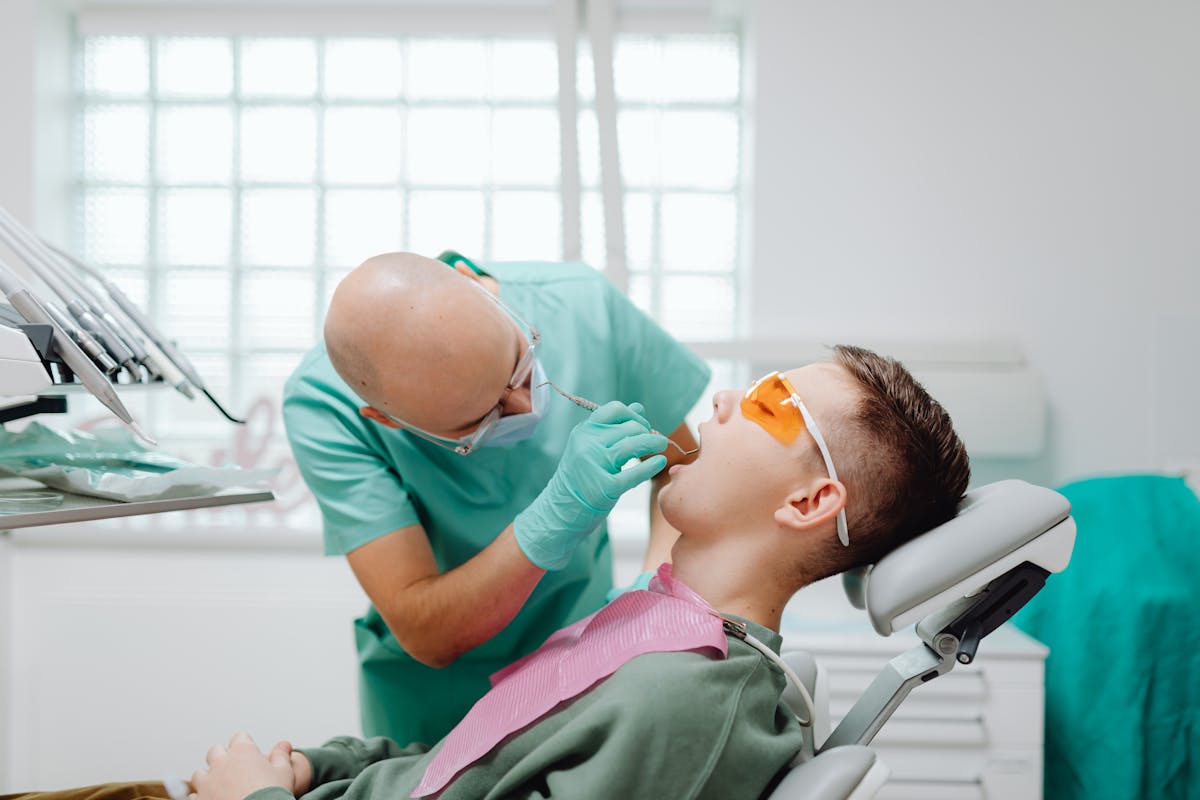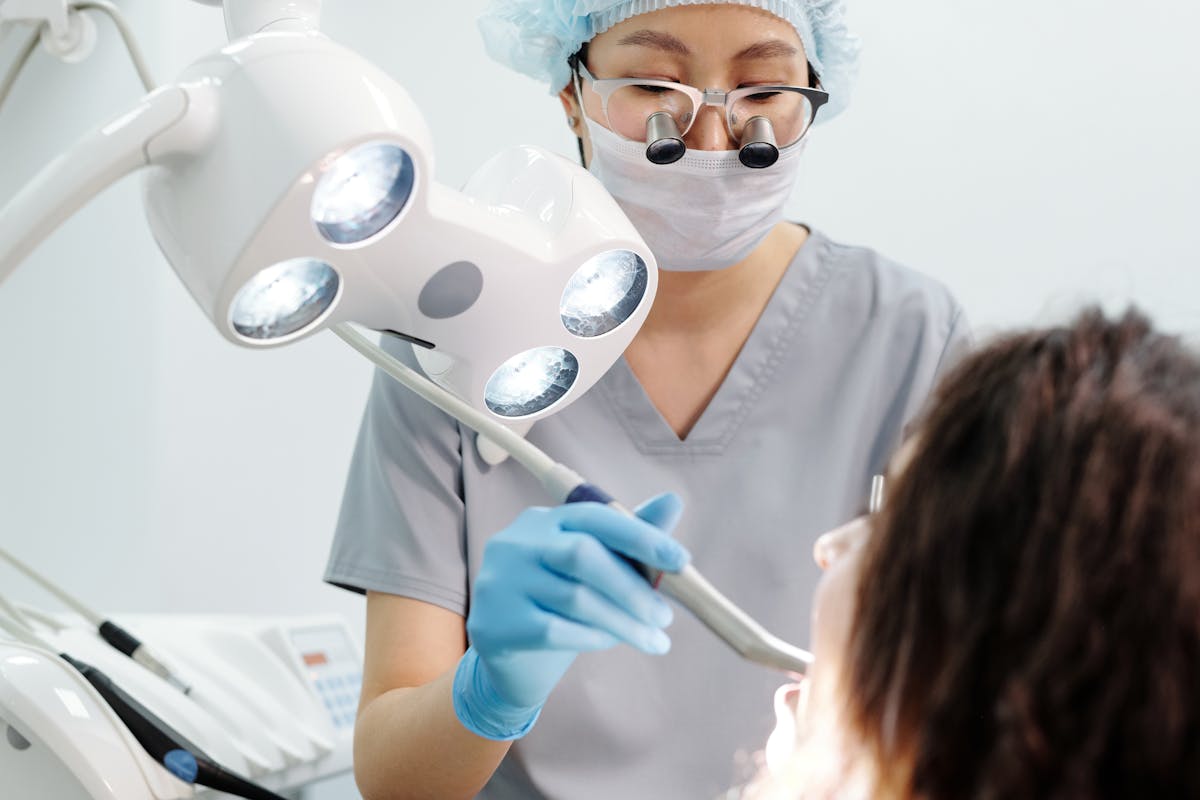Routine Cleaning and Check-Ups St, Graham, TX

Routine dental cleanings and check-ups in St. Graham, TX, are essential for upholding oral health. These visits involve detecting early signs of cavities and gum disease, which allows for timely interventions. Professional cleanings effectively remove plaque and tartar, aiding in both hygiene and aesthetics. Dental practices in St. Graham offer personalized care to cater to individual needs. Understanding the significance of these appointments could lead to long-term oral health benefits.
Importance of Routine Dental Visits
Regularly attending dental appointments is essential for maintaining ideal oral health. These visits serve as a cornerstone for preventive care, enabling dental professionals to identify early signs of oral diseases that may not be visible to the untrained eye. During routine check-ups, clinicians conduct thorough examinations and professional cleanings, removing plaque and tartar accumulation that brushing and flossing might miss. Patient education plays a pivotal role at these appointments, where dentists provide tailored advice on effective oral hygiene practices. This guidance empowers patients to make informed decisions, promoting long-term dental health. By adhering to a schedule of routine dental visits, individuals can considerably reduce the risk of developing more complex oral health issues, underscoring the importance of proactive management.
Preventing Cavities and Tooth Decay
While maintaining ideal oral hygiene markedly contributes to preventing cavities and tooth decay, it is essential to understand the underlying mechanisms that lead to these common dental issues. Tooth decay causes stem from the interaction between dietary sugars and oral bacteria, resulting in acid production that erodes enamel. Effective cavity prevention techniques include regular brushing with fluoride toothpaste, which strengthens enamel and neutralizes acids. Flossing daily removes interdental plaque, reducing bacterial accumulation. Additionally, professional cleanings and fluoride treatments enhance enamel resistance. Dietary modifications, such as reducing sugary food and beverage intake, play a vital role in minimizing acid exposure. Sealants provide a protective barrier over molars, further preventing decay. Thorough education on these strategies empowers patients to maintain ideal oral health.
Early Detection of Oral Health Issues
Identifying oral health issues at an early stage is a fundamental aspect of effective dental care. Early detection plays a pivotal role in mitigating potential complications by intercepting issues before they escalate. During routine check-ups, dental professionals meticulously examine for oral symptoms such as gingival inflammation, enamel demineralization, or malocclusion. These indicators may signify underlying conditions like periodontal disease or caries formation. Advanced diagnostic tools, including digital radiography and intraoral cameras, enhance the detection accuracy, allowing practitioners to visualize subclinical anomalies invisible to the naked eye. Timely identification facilitates tailored interventions, preserving oral function and aesthetics. Consequently, patients benefit from reduced treatment complexity, minimized discomfort, and enhanced long-term dental health outcomes by addressing oral symptoms promptly and effectively.
Professional Teeth Cleaning Benefits
Professional dental cleanings play an essential role in maintaining oral health by effectively removing plaque and tartar, which are primary contributors to tooth decay and periodontal disease. These cleanings are instrumental in preventing gum disease, a condition that can lead to tooth loss and has been linked to systemic health issues. Additionally, the removal of surface stains during cleaning enhances the aesthetic appearance of teeth, resulting in a noticeably brighter smile.
Plaque and Tartar Removal
A considerable aspect of maintaining oral health is the meticulous removal of plaque and tartar through professional teeth cleaning. Dental professionals employ specialized instruments to effectively manage plaque buildup and guarantee ideal tartar control. Plaque, a sticky film of bacteria, accumulates on teeth surfaces, potentially leading to the mineralized deposit known as tartar if not promptly addressed. This hardened substance can only be removed through professional intervention. During a dental cleaning, ultrasonic devices and hand scalers are utilized to dislodge and eradicate these deposits from above and below the gumline, safeguarding the patient’s oral health. Regular removal of plaque and tartar not only enhances the aesthetic appearance of teeth but also contributes considerably to the prevention of more severe dental complications.
Preventing Gum Disease
The cornerstone of effective gum disease prevention lies in regular professional teeth cleaning, underscoring its significant role in maintaining periodontal health. Professional cleaning meticulously removes plaque and tartar—primary risk factors for gum disease—that accumulate despite diligent home oral care. This process disrupts the bacterial biofilm responsible for gingivitis and periodontal disease. Dental hygienists utilize specialized instruments to access areas that are challenging to clean with standard brushing and flossing, effectively reducing inflammation and preventing further progression of gum disease. Additionally, during these appointments, dental professionals assess gum tissue health, identifying early signs of gum disease, which can be addressed promptly. This proactive approach reduces the risk of complications such as tooth loss, reinforcing the importance of regular cleanings in preventive dental care.
Brightening Your Smile
While many individuals aim for a brighter smile, the benefits of professional teeth cleaning extend beyond mere aesthetics. Professional cleanings effectively remove plaque and tartar buildup, which cannot be eliminated through regular brushing and flossing alone. This process not only enhances oral hygiene but also serves as a foundation for teeth whitening procedures. Patients benefit from reduced staining, thereby facilitating a more effective smile makeover. By undergoing regular cleaning sessions, individuals can maintain ideal oral health and considerably enhance their smile’s brightness. Additionally, professional cleanings aid in early detection of potential dental issues, ensuring a proactive approach to dental care. Such preventative measures allow patients to maintain a healthy, radiant smile, aligning with their aesthetic goals and overall oral health.
Comprehensive Oral Health Assessments
Every dental professional understands the critical role of thorough oral health assessments in maintaining ideal patient health. These evaluations encompass a meticulous examination of the oral cavity, teeth, gums, and jaw. Dental x-rays serve as a pivotal component, offering insights into areas not visible to the naked eye, such as beneath the gum line or inside the tooth structure. Identifying anomalies early, including potential oral cancer indicators, is paramount for effective intervention. The assessment process involves checking for signs of decay, periodontal disease, and oral pathology, ensuring extensive care. By utilizing advanced diagnostic tools and techniques, dental practitioners can formulate an accurate diagnosis and an appropriate treatment plan, prioritizing the patient’s long-term oral health and overall well-being.
Personalized Dental Care in St. Graham
St. Graham’s dental practitioners prioritize personalized treatment, focusing on individual patient needs to guarantee ideal oral health outcomes. Personalized dental care involves an extensive evaluation of each patient’s oral health status, considering factors such as medical history, lifestyle habits, and specific dental concerns. By utilizing advanced diagnostic tools and techniques, clinicians develop tailored solutions that address the unique requirements of each patient. This patient-centric approach facilitates the creation of customized treatment plans, which may include preventive, restorative, or cosmetic procedures. The objective is to enhance patient satisfaction and improve oral health by aligning treatment modalities with personal health goals. Through continuous monitoring and adjustments, St. Graham’s dental professionals are committed to delivering high-quality, individualized care that promotes long-term oral well-being.
How Often Should You Schedule Check-Ups?
Determining the ideal frequency for scheduling dental check-ups involves evaluating individual risk factors such as age, oral health status, and lifestyle habits. Patients with higher susceptibility to dental conditions may require more frequent visits, while those with stable oral health might benefit from biannual check-ups. Regular visits are essential for early detection and management of potential issues, contributing to overall oral health maintenance.
Ideal Check-Up Frequency
While evaluating the ideal frequency for medical check-ups, it is essential to take into account various factors such as age, medical history, and current health status. Generally, adults are recommended to undergo annual examinations to guarantee early detection of potential health concerns. However, the ideal check-up frequency can vary considerably. For instance, younger individuals in good health might require less frequent visits, while older adults or those with chronic conditions may benefit from more regular monitoring. Patient preferences also play a critical role in determining check-up intervals, as personal comfort and lifestyle considerations can influence adherence to medical advice. Ultimately, healthcare providers must tailor recommendations to each patient’s unique circumstances, balancing clinical guidelines with individual needs and preferences.
Factors Influencing Schedule
The ideal frequency for scheduling medical check-ups is influenced by a complex interplay of factors that require careful consideration by healthcare professionals. These determinants encompass patient age, medical history, and predisposition to certain health conditions. An individual’s scheduling preferences are shaped by their unique patient lifestyles, which may include occupational demands, personal commitments, and access to healthcare resources. For instance, individuals with chronic conditions might necessitate more frequent monitoring, whereas those in robust health might opt for annual visits. Moreover, family history of diseases such as diabetes or cardiovascular issues can necessitate tailored scheduling protocols. Healthcare providers must balance these variables, ensuring that check-up intervals align with both preventive care guidelines and personalized patient needs, ultimately optimizing health outcomes.
Benefits of Regular Visits
When considering the benefits of regular medical visits, it becomes evident that consistent check-ups play an essential role in the early detection and management of health issues. Regular check-ups facilitate the identification of potential health concerns before they escalate, particularly in family dental care, where early intervention can prevent extensive dental procedures. Addressing barriers like dental anxiety solutions is vital, as they enable patients to approach their dental appointments with increased comfort and reduced stress. The recommended frequency of check-ups should be personalized, factoring in an individual’s unique health profile and risk factors. Regular visits also foster a proactive approach to health management, empowering patients with valuable information and preventative strategies to maintain ideal health outcomes.
Choosing the Right Dental Practice
How does one determine the most suitable dental practice for their needs? Selecting an appropriate dental practice involves evaluating several criteria to guarantee peak patient care. First, prospective patients should examine patient testimonials, which offer insights into the experiences of others, highlighting aspects such as staff professionalism, treatment efficacy, and overall satisfaction. Additionally, analyzing the range of services provided, including preventative, diagnostic, and restorative procedures, is vital to meet diverse dental care requirements. Reviewing the qualifications and experience of the dental practitioners within the practice is essential, as these factors directly influence the standard of care delivered. Moreover, the practice’s commitment to ongoing education and utilization of advanced technology should be considered, as these elements contribute to enhanced treatment outcomes and patient comfort.
Maintaining a Confident and Healthy Smile
To achieve and maintain a confident and healthy smile, individuals must adhere to a thorough oral hygiene regimen tailored to their specific dental needs. This regimen includes regular brushing with fluoride toothpaste and flossing to remove dental plaque and prevent periodontal disease.
Routine dental check-ups are imperative for monitoring oral health and identifying potential issues early on. Professional cleanings help eliminate tartar that cannot be removed by brushing alone, enhancing smile confidence. Adopting healthy habits such as a balanced diet and limiting sugary snacks further promotes oral health. The integration of mouthwash can reduce oral bacteria, contributing to fresher breath and overall dental hygiene. Ultimately, these practices collectively foster a resilient and radiant smile, reflecting ideal oral health and self-assurance.


We're here to help! Call Us Today!
At Twelve Oaks Dental Care, we provide quality family, general, and cosmetic dentistry in a welcoming environment. Our team focuses on personalized care to help every patient feel comfortable and confident in their smile.
